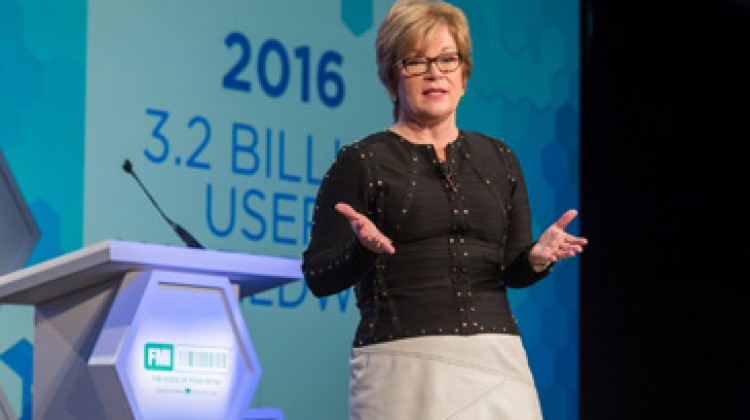
Leslie Sarasin is in the midst of a good run at the Food Marketing Institute. When she became president and CEO of the organization in 2008, FMI was widely perceived as having lost its focus, leaving people inside and outside the association unclear about its agenda and how it was being pursued. Sarasin changed all that, mapping out a plan that closely aligned the work of FMI with the objectives of its members.
 The industry was quick to take note of her success in reenergizing the association. “I’m really proud of the effort FMI has made since Leslie took over,” said Craig Boyan, president and COO of H-E-B, one of the most respected supermarket operators in the country, at the recent FMI Midwinter Executive Conference. “You might know that H-E-B had left FMI a few decades ago, and we returned several years ago, largely because of the power of Leslie and all the great work that she and her team do on behalf of the industry, engaging legislators, policy makers and regulators.”
The industry was quick to take note of her success in reenergizing the association. “I’m really proud of the effort FMI has made since Leslie took over,” said Craig Boyan, president and COO of H-E-B, one of the most respected supermarket operators in the country, at the recent FMI Midwinter Executive Conference. “You might know that H-E-B had left FMI a few decades ago, and we returned several years ago, largely because of the power of Leslie and all the great work that she and her team do on behalf of the industry, engaging legislators, policy makers and regulators.”
Sarasin is not one to rest on her laurels. She now has her sights set firmly on further transformation of the association to ensure that it remains relevant.
“There’s so much change going on right now in the industry that people are anxious to figure out where they fit in this new order that we have in the business, and to make sure they’ve got the right people in place and that they are anticipating the future in ways they probably haven’t had to focus on so closely before,” she said at the midwinter meeting. “As they change, we’re changing to make sure that we can provide the resources they need to be able to accomplish their goals.”
One thing that remains a constant is FMI’s focus on government policy and how it affects the food supply chain. Its work in that field is particularly important today, as the Food and Drug Administration and other agencies work to implement the Food Safety Modernization Act, the most sweeping reform of food safety regulations in almost a century.
“We devote a lot of time to talking with our members about the new regulatory requirements,” Sarasin notes. “By virtue of our position in Washington, we spend a lot of time working with policy makers, both before the rules are finalized, so that we can help the regulatory agencies understand what the impact is going to be on the business and hopefully minimize any negative impact, as well as when the regulations are being implemented.
“We also help our members understand what the new regulations mean and how they’re going to influence the way they do business, and how they can maximize their position in the marketplace using the regulatory environment to their advantage. Then it’s up to the individual companies to figure out how they use that information to enhance their businesses.”
FMI’s government affairs work is more challenging than ever. In addition to activity at the federal level, food retailers have to contend with the emergence of what could become a patchwork of state regulations governing such issues as GMO labeling. The changing regulatory environment and other forces that are reshaping grocery retailing have prompted Sarasin and her colleagues to take another hard look at FMI.
“This is a time when we need new and different ways of collaborating within the industry,” Sarasin says. “There’s too much at stake. None of us has the luxury of wasting time or resources on activities that don’t provide net benefit. So in the same way that everything that’s going on is affecting the industry, it’s also affecting FMI. We have to evolve.”
If the association is able to sustain the forward momentum that has characterized it during Sarasin’s tenure, grocery retailers are likely to continue to express their satisfaction with FMI.




You must be logged in to post a comment Login